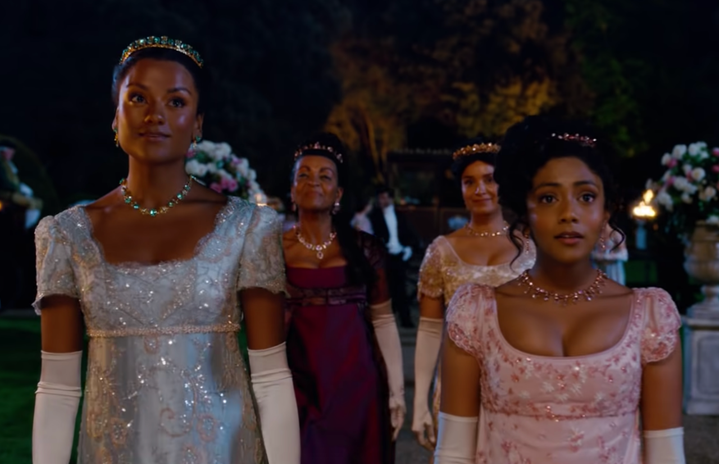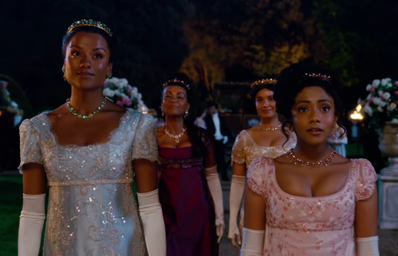In the past three years, I have gotten more representation as a brown girl than I have in my entire life. Growing up, the only character I could name that looked like me was Princess Jasmine. Despite being a cartoon character, I was happy with having her. I forced myself to settle for stereotypical characters like Ravi from Jessie and Baljeet from Phineas and Ferb. But wait, there was also Beck from Victorious! Fortunately, there has been a brown girl renaissance in mainstream media recently, and I must say to my younger self: you were settling for nothing!
I could have never imagined seeing brown girls taking on so many lead roles as they have recently. I remember the first day the trailer for Netflix’s Never Have I Ever came out; I felt so excited and surprised to see a South Asian character have a show to herself. From the second the trailer began, I immediately felt connected to the main character, Devi. It was my first time feeling that way, and it was so surprising, I honestly felt spoiled at that moment. Since then, I have gotten to see characters such as the Sharma sisters from Bridgerton, Inej Ghafa from Shadow and Bone, Kamala Khan from Ms.Marvel, and Karen from the new Mean Girls on the big screen. The seemingly sudden influx has truly overwhelmed me; my entire life I normalized the idea that girls like me were not going to be the main characters. Not only that, I subconsciously normalized to myself that brown girls weren’t ever going to be the love interest, the “hot” one of the friend group, or the “desirable” character. I feel the need to clarify that I did not actually think that way, but I felt conditioned to because of the total absence of brown women in the media around me.
With its impacts often overlooked, it is important to recognize how representation helps to deconstruct stereotypes, uplift minorities, and heal internalized misconceptions. Media acts as spaces for minorities to find their voices, and even though not all roles need to have a message of representation behind them, the simple impacts of exposure should not be undermined. Being included matters, representation matters — and it repeatedly seems that the people who voice otherwise are not part of the minority groups that feel excluded. It is easy for people not affected to try to diminish the shared experiences of minority communities.
To truly help brown girls, and other minority groups for that matter feel included, we have to normalize their existence in society. Normalize the idea of a brown girl being the love interest (Kate Sharma), being the hot one of the friend group (Avantika as Karen in Mean Girls), being a superhero (Kamala Khan), and being the main character (Devi Vishwakumar). We need to just normalize the existence of brown girls in the media. We can only be normalized in the media through increased and varied representation. Specifically, representation that deconstructs existing stereotypes and highlights characters’ individuality.
Recently, the new Mean Girls musical movie came out and I was surprised to see a brown girl in the cast, and even more pleasantly surprised when I found out who she was playing. The rising actress, Avantika Vandanapu, plays Karen in the movie and has gotten lots of support for the role, receiving several hit tweets on Twitter.
Mixed with this influx of support has been a significant amount of backlash. Backlash for being brown. Despite being rarely talked about, racism and prejudice against South Asian women is quite normalized. The various comments Avantika received marked her race as the reason for her being unfit for the role. Luckily the actress realized how unserious the basis of these commenters’ “arguments” were and played into them being a joke with an Instagram post.
Avantika’s performance as Karen has been met with lots of praise. A so-called new “it” girl, people love her so much she has become a new popular fancast for a live-action Rapunzel. As strange as this sounds, it is so amazing to see young brown women play pretty and dumb characters like Karen. That is the all-encompassing range I want to see. We are not all just smart brainiacs — we can also be dumb!
After being ignored for so long, it is heartwarming to see all this newfound appreciation for South Asian women, and such a relief for the future generations of brown girls. It is crazy to reflect on the progress that has been made in getting brown girl representation in mainstream media. I am thankful for the validation and self-recognition the various portrayals I have listed have given me and I wish that all minorities can feel appreciated and seen without having to beg for inclusion. Empowering representation — including playful representations like Queen Karen, has played a vital role in helping me to love and embrace my culture and heritage and I am excited to see us brown girls getting even more flowers in the future.


